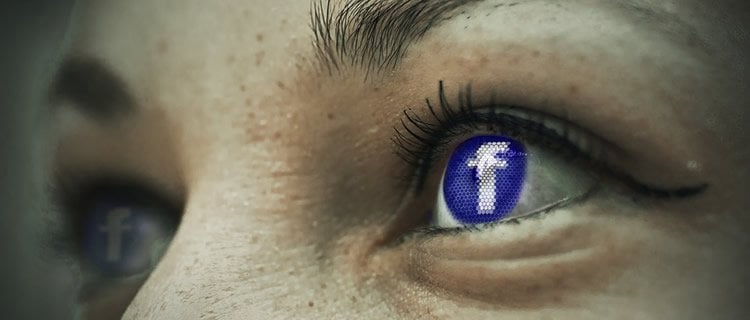Summary: A new study shows an association between excessive social media use and impaired risky decision making, a common deficient in substance addiction.
Source: Michigan State University.
Bad decision-making is a trait oftentimes associated with drug addicts and pathological gamblers, but what about people who excessively use social media? New research from Michigan State University shows a connection between social media use and impaired risky decision-making, which is commonly deficient in substance addiction.
“Around one-third of humans on the planet are using social media, and some of these people are displaying maladaptive, excessive use of these sites,” said Dar Meshi, lead author and assistant professor at MSU. “Our findings will hopefully motivate the field to take social media overuse seriously.”
The findings, published in the Journal of Behavior Addictions, are the first to examine the relationship between social media use and risky decision-making capabilities.
“Decision making is oftentimes compromised in individuals with substance use disorders. They sometimes fail to learn from their mistakes and continue down a path of negative outcomes,” Meshi said. “But no one previously looked at this behavior as it relates to excessive social media users, so we investigated this possible parallel between excessive social media users and substance abusers. While we didn’t test for the cause of poor decision-making, we tested for its correlation with problematic social media use.”
Meshi and his co-authors had 71 participants take a survey that measured their psychological dependence on Facebook, similar to addiction. Questions on the survey asked about users’ preoccupation with the platform, their feelings when unable to use it, attempts to quit and the impact that Facebook has had on their job or studies.
The researchers then had the participants do the Iowa Gambling Task, a common exercise used by psychologists to measure decision-making. To successfully complete the task, users identify outcome patterns in decks of cards to choose the best possible deck.

Meshi and his colleagues found that by the end of the gambling task, the worse people performed by choosing from bad decks, the more excessive their social media use. The better they did in the task, the less their social media use. This result is complementary to results with substance abusers. People who abuse opioids, cocaine, methamphetamine, among others – have similar outcomes on the Iowa Gambling Task, thus showing the same deficiency in decision-making.
“With so many people around the world using social media, it’s critical for us to understand its use,” Meshi said. “I believe that social media has tremendous benefits for individuals, but there’s also a dark side when people can’t pull themselves away. We need to better understand this drive so we can determine if excessive social media use should be considered an addiction.”
Meshi’s research partners included MSU colleagues, as well as faculty from Monash University in Melbourne, Australia.
Source: Caroline Brooks – Michigan State University
Publisher: Organized by NeuroscienceNews.com.
Image Source: NeuroscienceNews.com image is in the public domain.
Original Research: Abstract for “Excessive social media users demonstrate impaired decision making in the Iowa Gambling Task” by Meshi Dar, Dar Meshi, Elizarova Anastassia,
Bender Andrew, Verdejo-Garcia Antonio in Journal of Behavior Addictions. Published January 7 2019.
doi:10.1556/2006.7.2018.138
[cbtabs][cbtab title=”MLA”]Michigan State University “Excessive Social Media Use Comparable to Drug Addiction.” NeuroscienceNews. NeuroscienceNews, 10 January 2019.
<https://neurosciencenews.com/social-media-drug-addiction-10495/>.[/cbtab][cbtab title=”APA”]Michigan State University(2019, January 10). Excessive Social Media Use Comparable to Drug Addiction. NeuroscienceNews. Retrieved January 10, 2019 from https://neurosciencenews.com/social-media-drug-addiction-10495/[/cbtab][cbtab title=”Chicago”]Michigan State University “Excessive Social Media Use Comparable to Drug Addiction.” https://neurosciencenews.com/social-media-drug-addiction-10495/ (accessed January 10, 2019).[/cbtab][/cbtabs]
Abstract
Excessive social media users demonstrate impaired decision making in the Iowa Gambling Task
Background and aims
Online social networking sites (SNSs) like Facebook provide users with myriad social rewards. These social rewards bring users back to SNSs repeatedly, with some users displaying maladaptive, excessive SNS use. Symptoms of this excessive SNS use are similar to symptoms of substance use and behavioral addictive disorders. Importantly, individuals with substance use and behavioral addictive disorders have difficulty making value-based decisions, as demonstrated with paradigms like the Iowa Gambling Task (IGT); however, it is currently unknown if excessive SNS users display the same decision-making deficits. Therefore, in this study, we aimed to investigate the relationship between excessive SNS use and IGT performance.
Methods
We administered the Bergen Facebook Addiction Scale (BFAS) to 71 participants to assess their maladaptive use of the Facebook SNS. We next had them perform 100 trials of the IGT to assess their value-based decision making.
Results
We found a negative correlation between BFAS score and performance in the IGT across participants, specifically over the last block of 20 trials. There were no correlations between BFAS score and IGT performance in earlier blocks of trials.
Discussion
Our results demonstrate that more severe, excessive SNS use is associated with more deficient value-based decision making. In particular, our results indicate that excessive SNS users may make more risky decisions during the IGT task.
Conclusion
This result further supports a parallel between individuals with problematic, excessive SNS use, and individuals with substance use and behavioral addictive disorders.






